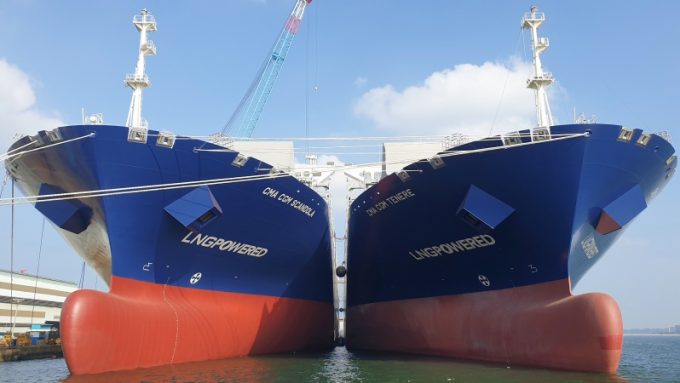More luck than judgment? Top 10 box lines enjoy elusive balance
Something of a sweet spot?

Some of the major supporters of LNG as a transitional fuel in maritime have announced they are collaborating with technology companies to mitigate the effects of methane, a major component of LNG, on the atmosphere.
Methane is around 80 times more potent as a greenhouse gas, ...

Comment on this article